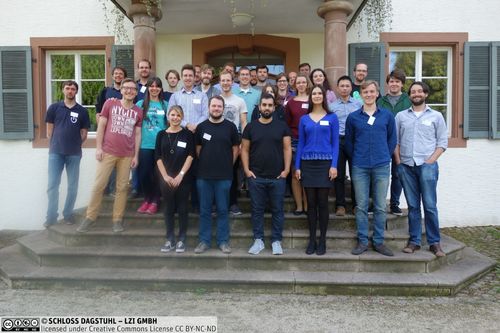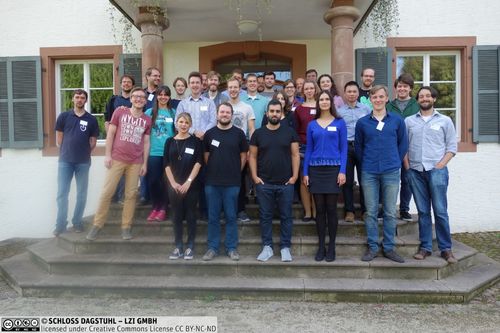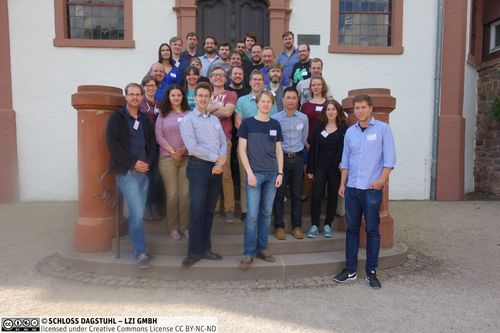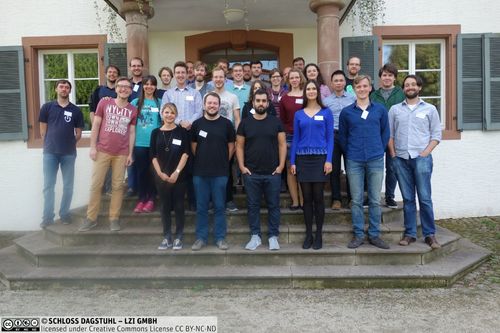Advanced Training 16393
de.NBI Sommer Schule 2016 – From Big Data to Big Insights: Computational Methods for the Analysis and Interpretation of Mass-Spectrometric High-Throughput Data
( Sep 25 – Sep 30, 2016 )
Permalink
Organizers
- Stefan Albaum (Universität Bielefeld, DE)
- Martin Eisenacher (Ruhr-Universität Bochum, DE)
- Oliver Kohlbacher (Universität Tübingen, DE)
- Knut Reinert (FU Berlin, DE)
Contact

Over the last few years methods from the computer science have been transferred to the biomedical field. On the one hand that applies to the actual IT technology enabling storage or transfer of experimental data. On the other hand it applies even more to research from core computer science (for example, algorithm engineering and machine learning). Within the biological and biomedical disciplines (for example driven by the human genome project) high-throughput methods have been established and optimized, which require a tight connection with IT and computer science due to the large amount and the complexity of data generated. Doing so, whole genomes, proteomes (the totality of proteins in a sample or organism) or metabolomes (the entirety of intermediate molecules of metabolic processes) can be identified and compared to each other. Proteomics and metabolomics are to a large extent based on experimental data, for which – assuming certain prerequisites – mass spectra of a sample are assigned to specific biomolecules. Thus questions arising from basic and applied research can be answered, as for example the differentiation of the protein composition between healthy and diseased persons or the early detection of Parkinson patients. As the Omics technologies are rather wide-spread today, developed algorithms should be usable also by non-computer science experts and sustainably utilizable by them, e.g. as combinable modules in workflow systems.
Our summer school has the aim to give PhD students and postdocs from computer science / bioinformatics as well as developers of bioinformatics algorithms and analysis software deeper insights in the details of existing algorithms or software systems in the proteomics and metabolomics. Participants will use – instructed by speakers or organizers – existing tools to analyse and visualize real-world datasets (data prepared for the tutorials specifically as well as the participants’ own data). Beyond that, they will be put into a position to be able to combine their own existing and future algorithms or tools with other solutions as well as to integrate them into a sustainable software system. To this end the summer school will also contain hackathons to quickly prototype novel tools.
The summer school will allow participation for 20 PhD students / postdocs (costs for travel have to be paid by the participants). Target audience are computer scientists developing methods / algorithms / tools and biologists applying these methods.





